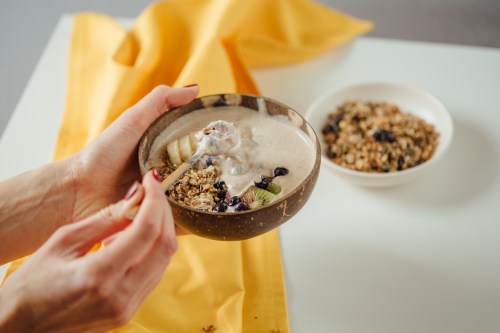Jennifer Lawrence Just Opened Up About How ‘Extremely Isolating’ Motherhood Can Feel
So many women can relate.

In the newly released dramatic film, Die, My Love, actress Jennifer Lawrence plays a new mom who develops postpartum depression and psychosis after being left alone in a rundown house in the woods as her husband goes to work. While this may seem like a difficult role to tap into, Lawrence, a 34-year-old mom of two, shared while promoting the film that she can actually relate to her character.
Experts in This Article
clinical associate professor of psychiatry at New York Presbyterian Hospital
reproductive psychiatrist and researcher at the Ohio State University Wexner Medical Center
“As a mother, it was really hard to separate what I would do as opposed to what she would do,” Lawrence said at a press conference at the Cannes Film Festival. “And it was just heartbreaking," she adds. Lawrence, who was five months pregnant at the time of filming, spoke about her own experience after giving birth.
“There’s not really anything like postpartum…it’s extremely isolating,” Lawrence said. “The truth is, extreme anxiety and extreme depression are isolating, no matter where you are. You feel like an alien," she added.
Lawrence also spoke to the life-changing reality of becoming a mom. "It changes your whole life. It's brutal and incredible...I didn't know that I could feel so much, and my job has a lot to do with emotion. It's almost like feeling a blister or something—like, so sensitive...They've changed me creatively. I highly recommend having kids if you want to be an actor," she added.
Mental health experts say Lawrence's comments are relatable for new moms
Whether or not you're a movie star, experts agree that Lawrence brings up some valid, and relatable, points about the transition into motherhood, a time also known as matrescence.
“Becoming a mother is a huge identity shift—and a change in body, body view, and future purposes,” says Gail Saltz, MD, associate professor of psychiatry at the NewYork-Presbyterian Hospital Weill-Cornell School of Medicine. “It can take a while to feel like ‘you’ again. While you may like and wish for these changes in many ways, it can also feel like you are so different from the old you, like an alien," she adds.
New motherhood can be especially jarring, says Tamar Gur, MD, PhD, a reproductive psychiatrist and researcher at the Ohio State University Wexner Medical Center. Many women are physically isolated from the world during the first six weeks to help protect their babies from germs at a time when they’re especially vulnerable, she points out. “We tend to limit our explorations in bringing the baby to a lot of different places, and rightfully so,” she says. “But that can limit our interactions with the outside world."
Being open to connections is crucial during this time
The transition to becoming a mom can feel isolating, but it doesn't have to be. Dr. Gur says it's "key" to try and stay connected with others after having a baby, and to make sure you have a good support system in place—whether that's family, friends, your care team, or all of the above.
“A lack of a village is very much associated with mental health challenges postpartum,” Dr. Gur. “You really need just one or two people you can count on to check in with you and to make sure that you have all of the things you need," she adds.
And if you're in that sweet spot of time post-birth where you're keeping your baby away from others (and potential germs), it's still possible to talk to friends on the phone or over text, Dr. Gur adds. Outside visits in the fresh air are also a good option, she adds.
But Dr. Saltz also says the priority is being gentle with yourself at this time, too. “Give yourself the space and grace to know this is a huge transition and so these feelings are normal,” she says. “But also if you do feel lonely, making efforts to find other young moms to get together with your babies to have adult company and others to talk with can really help," she adds.
Dr. Gur agrees: “Look for local parenting groups,” once you’re ready to venture back out, she says. “There are often parenting meet-ups from which friendships can come into the world, but you have to make an effort,” she adds.
Being open to receiving help from others is also strongly recommended. "If people are offering you help, have a really low threshold for accepting it,” Dr. Gur says. “If you don’t keep your eyes open, you won’t see it," she adds.










